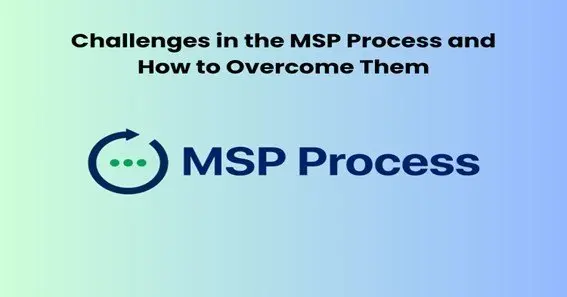The Managing Successful Programmes (MSP) framework serves as a guiding light for organizations seeking to navigate the complex terrain of program management. However, like any robust system, the MSP Process is not immune to challenges that can impede its smooth implementation. In this blog, we’ll delve into some common challenges faced during the MSP process and explore strategies to overcome them. Whether you’re a seasoned program manager or considering diving into the world of MSP through the MSP Course, understanding and addressing these challenges is crucial for ensuring the success of large-scale initiatives.
Unpacking the MSP Course and Process
First, let’s take a quick look at the MSP course and procedure before we go into the problems. Courses in MSP teach students the ins and outs of the MSP framework, a set of guidelines for managing programmes efficiently. The multi-stage MSP approach is designed to effectively manage change, provide value, and align programmes with organizational goals.
Also Read : Understanding the Different Types of Restaurant Equipment Financing Options
Common Challenges in the MSP Process
Here are the Common Challenges in the MSP Process:
Lack of Senior Management Support
Challenge: Without strong support from senior management, the MSP process may face resistance or insufficient resources, hindering its successful implementation.
Solution: Engage senior management early in the process, communicate the strategic benefits of MSP, and demonstrate how it aligns with organizational goals. Bring attention to the importance of top leaders’ decision-making and guiding contributions to the programme.
Inadequate Stakeholder Engagement
Challenge: Ineffective stakeholder engagement can lead to misalignment of program goals and expectations, resulting in challenges during the implementation phase.
Solution: Identify and involve key stakeholders from the beginning. Throughout the MSP process, make sure there are open lines of communication, listen to their worries, and keep them engaged. Discuss the program’s advantages and progress regularly to keep stakeholders engaged and informed.
Poorly Defined Benefits
Challenge: If program benefits are not clearly defined or quantifiable, measuring success and demonstrating the program’s value becomes challenging.
Solution: Invest time in thoroughly defining and quantifying benefits during the early stages of the MSP process. Create a benefits realisation strategy that specifies the metrics you’ll use to evaluate the program’s success.
Resistance to Change
Challenge: Resistance from individuals or departments impacted by the program can impede progress and hinder successful change management.
Solution: Implement a robust change management strategy. Explain why things are changing, get people’s input when making decisions, and then back them up with training and support as they adjust.
Inadequate Planning and Risk Management
Challenge: Project delays, resource problems, and unforeseen obstacles during programme execution might result from insufficient risk management and poor planning.
Solution: Invest time in thorough planning at the beginning of the MSP process. Find possible problems, do a thorough risk assessment, and take measures to deal with them. Plans should be reviewed and updated regularly as the programme advances.
Insufficient Resources
Challenge: Inadequate resources, whether in terms of budget, personnel, or technology, can hinder the effective execution of the MSP process.
Solution: Conduct a realistic assessment of resource requirements during the planning phase. Get the help you need by making your resource requirements known to the people who matter. Monitor how resources are being distributed and make adjustments as necessary.
Lack of Continuous Improvement
Challenge: Chances to enhance procedures and future programmes can go unused if a culture of continuous improvement is not adopted.
Solution: Integrate continuous improvement into the fabric of the MSP process. Gather stakeholder input, do post-implementation evaluations regularly, and use lessons learned to improve future programmes. Promote an attitude that regards life lessons as valuable.
Overcoming Challenges for MSP Success
A proactive and deliberate strategy is necessary to address issues in the MSP process. To get around these obstacles and successfully deploy the MSP framework, use these strategies:
Comprehensive Training: Invest in comprehensive training, such as an MSP course, to ensure that individuals involved in the MSP process are well-versed in the principles and best practices. Because of this, they will be more equipped to handle obstacles and make meaningful contributions to the programme’s success.
Clear Communication: Establish clear and transparent communication channels throughout the MSP process. Facilitate open communication amongst all parties and respond quickly to inquiries or concerns. Being able to express oneself creates an atmosphere of trust and encourages teamwork.
Regular Reviews and Audits: Conduct regular reviews and audits of the MSP process to identify potential challenges early on. Teams can better respond to new challenges as they arise, change their plans as needed, and correct their course of action when they do evaluations regularly.
Flexibility and Adaptability: Embrace flexibility and adaptability as core principles of the MSP process. It’s important to adapt plans, react to changes, and pivot as needed to keep going when faced with uncertainty.
Engage in Continuous Learning: Foster a culture of continuous learning within the organization. Insist that your team members take advantage of professional development opportunities, further their education, and keep up with the ever-changing field of programme management best practices.
Establish a Risk Management Framework: Develop a robust risk management framework as an integral part of the MSP process. Look for new dangers, reevaluate existing ones, and always be prepared for the worst. When problems arise, proactive risk management lessens their effect on the programme.
Align with Organizational Strategy: Ensure the MSP process remains aligned with organizational strategy. The link between the program’s aims and the organization’s larger objectives should be reviewed and reaffirmed regularly. This alignment lays forth a solid strategic basis for conquering obstacles.
Also Read : Future of Banking: Unraveling the Perks of Digital Savings Accounts
Conclusion
The MSP process, while powerful, is not without its challenges. The effective implementation of MSP, which leads to the realization of programme objectives and organizational success, depends on tackling these obstacles head-on and adopting strategic solutions. Organizations may succeed in programme management despite its complexity by committing to continual development, providing thorough training, and maintaining open lines of communication.

